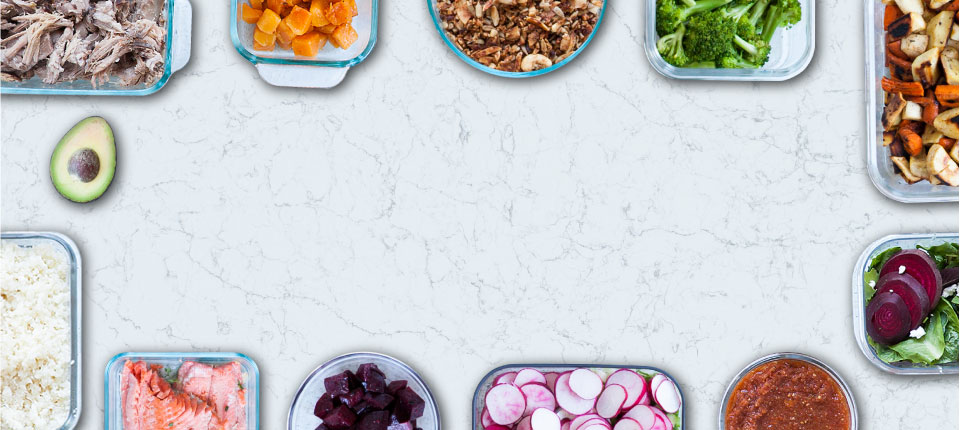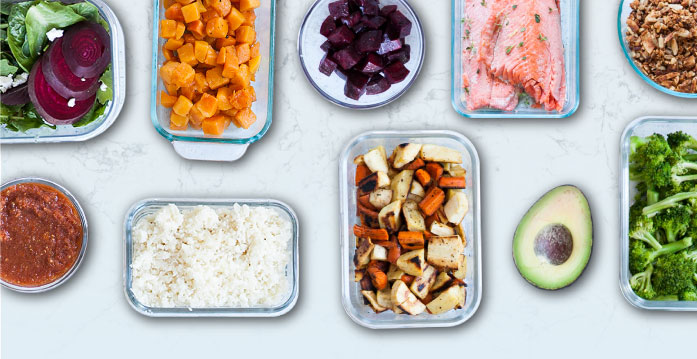The answer might not be so clean cut.
For example, different types of coconut oil do different things in the body.
Let’s unpack the claims surrounding coconut oil and talk about which one is the best to use in your home.
Five types of coconut oil, which do you use?
Not all coconut oil is the same. And whether coconut oil is bad for you partially depends on what kind you are using.
For example, refined coconut oil may have its benefits stripped by the extracting process. Hydrogenated coconut oil provides a dose of trans fat, though assumedly less than hydrogenated seed oil.
Virgin coconut oil, on the other hand, contains antiviral and antibacterial properties. Such a distinction, while included in the small print in studies, is often lost in the noise of click-bait headlines or snappy overviews. One study demonstrated that virgin coconut oil from wet extraction was more effective compared to oil gained from dried meat in lowering LDL cholesterol and triglycerides when fed to rats.
1. Refined coconut oil. The most commonly available, with no smell or taste of coconut.
In the conventional process, various solvents like hexane or other additives are used to help extract the oil from the dried coconut meat. The oil must be further refined to be palatable or given additives to lengthen the shelf life.
2. Organic refined coconut oil uses other methods, like steam-extraction or centrifuge, to separate the oil from the meat or milk.
Organic refined oil also has no taste or smell of coconut, but should not have chemicals added in order to increase yields.
3. Virgin coconut oil is made either by manually pressing it from fresh coconut meat or separating oil from coconut milk via centrifuge, squeezing, or fermenting.
Virgin coconut oil both smells and tastes of coconut.
4. Hydrogenated coconut oil comes from another step of processing refined coconut oil to raise its melting point (i.e. it has to be hotter to make it melt), which is more convenient in warmer climates.
Some of the unsaturated fats become trans fat in the process; trans fat is universally regarded as less than awesome. In fact, it might be the only thing that all the food factions agree on.
5. Fractionated coconut oil. This is coconut oil that has been separated into the different types of fat within the oil.
A popular form of this is medium-chain triglycerides (MCT) oil derived from coconut that is now popular in some health circles.
In addition to these five types of coconut oil, genetically modified coconuts exist and unless coconut oil is specifically not from GMO coconuts, you can’t know.
The saturated fat debate
Coconut oil contains 92% saturated fat. If you think that saturated fat is bad for you, that’s a lot of it.
For a long time, we heard that saturated fat clogs arteries and leads to heart disease. But for every study that says saturated fat is bad for you, there are studies that say saturated fat is good for you. And for every expert with extensive knowledge in one camp, another expert with extensive knowledge is in the other camp.
When folks like Gary Taubes, long a staunch promoter of saturated fats, suggests that replacing some saturated fat with polyunsaturated fat is better for you, it’s enough to make anybody’s head spin.
Science doesn’t lie, but it is carried out by humans, making it vulnerable to error or misinterpretation.
Nutritional studies especially cannot be carried out in isolated petri dishes and test tubes, but are subject to almost infinite variables that fly under the radar.
The argument against saturated fat runs like this: eating saturated fat raises LDL cholesterol, which in turn is directly associated with cardiovascular disease.
The counter argument goes something like this: there are three sizes of LDL cholesterol particles, small, medium, and large. While saturated fat can be associated with raising large LDL, it’s only the small ones that are associated with disease, and the argument even questions if cholesterol numbers are necessarily an indicator of heart disease.
High numbers of cholesterol are actually the body’s response to inflammation.
The argument also questions what kinds of fats were used in various studies – hydrogenated coconut oil, stripped of all its essential fatty acids, or trans fat, included in the saturated fat category, would both have negative effects compared to virgin coconut oil or beef tallow from free range cattle.
There are also different sizes of saturated fats, which impact the effect on health. You digest short-chain and medium-chain fats differently than long-chain fats, meaning that they have less of an effect on cholesterol levels.
To make it even more complicated, results from research varies and scientists themselves aren’t sure why they get different outcomes.
Saturated fats in coconut oil
Coconut oil is composed of about 92% saturated fat. Some of the saturated fat in coconut oil is made up of medium chain triglycerides (MCTs).
MCT’s have gotten press lately for being a beneficial fat. But how could they be beneficial if they are saturated?
In the first place, when digesting medium chain fatty acids, the molecules don’t have to be broken down by bile in order to be digested, as other larger fat molecules.
Instead, they pass into the liver, where they are an immediate source of energy. Because of this, MCTs are less associated with cholesterol, as the broken molecules don’t have to be carried around in the blood. This is also helpful for people who have difficulty digesting fats, such as those with gallstones or Crohn’s disease.
MCTs have also been shown to increase energy, promote weight loss, suppress appetite, and enhance calcium and magnesium absorption. They also appear to decrease the risk of arteriosclerosis and may even help delay dementia.
Two MCTs present in coconut oil are caprylic acid (8%) and capric acid (6%).
Both are strong antimicrobials. For example, caprylic acid has been found to kill E. coli and salmonella and capric acid can effectively manage gonorrhea and an overgrowth of the yeast, candida.
Capric acid has also been shown to help maintain strong bones.
That said, the most abundant type of fatty acid in coconut oil is lauric acid (49%) but unlike other MTCs, only a small percentage of it bypasses digestion and goes straight to the liver.
It does have, however, anti-bacterial, anti-viral, and anti-fungal activity. Lauric acid interferes with the self-communication of bacteria. It also fights candida, especially in those who have become resistant to conventional medication.
One benefit of high amounts of saturated fat in coconut oil is that saturated fat is more stable.
In other words, it takes longer to become rancid. Rancid oils are universally acknowledged to be detrimental to health as they form harmful free radicals in the body. The creation of free radicals is also why you shouldn’t heat oils beyond their smoke point when cooking.
Refined coconut oil has a higher smoke point (450F) than virgin coconut oil (350F).
Which coconut oil to shop for
It’s hard to reach a conclusion when there is so much conflicting evidence and opinions out there.
That said, we suggest that you shop for virgin coconut oil.
It’s the least processed coconut oil as it appears to have the most health-promoting benefits.
Organic refined coconut oil, while not as beneficial as virgin coconut oil, is still free from harmful chemicals and high heat processing, making it an option for cooking foods at a high temperature due to its high smoke point.
Both virgin and organic refined coconut oil are preferable to refined (and often rancid) vegetable-based oils. Whereas conventionally refined coconut oil and hydrogenated coconut oil are best avoided.


